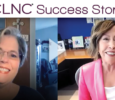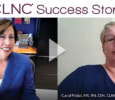Certified Legal Nurse Consultants never want to look foolish or say the wrong thing to an attorney-client. But what if it’s not you, but the attorney who requires redirection? In this blog I’ve asked 5 CLNC® Pros to share how they approach an attorney-client who is wrong. Here’s what they say:
“New attorneys are referred to as baby sharks. What better way for the baby sharks’ teeth to sharpen than with your nursing expertise? Try as they might, unless they have received nursing or medical training, anatomy and physiology are not their forte. Often, these babies are too embarrassed to speak about sensitive areas of the human anatomy. I remind them that there is nothing they can say to surprise me, because I’ve literally had my hands in places they probably don’t want to imagine. This immediately puts them at ease. The hesitation to speak of the genitourinary pee or gastrointestinal poo systems dissipates, and it becomes easier to provide an explanation. Just like the song, by Irvin Berlin ‘Doin’ what comes Natur’lly’, be yourself and enjoy the moment!”
– Suzanne E. Arragg, RN, BSN, CDONA/LTC, CLNC
“Over the years I’ve had attorneys tell me that there must be a way to make a case for a plaintiff even after I have informed them there is no case. They usually don’t understand the medical nuances. They may simply see a bad outcome, so they want to push for a case to go forward. I gently and carefully explain in detail why the case has no merit. I remind the attorney about the expense of pursuing a case and ask if it’s worth the expense if there is no strong supporting data. They usually back down. However, there have been two times in the past 18 years when I’ve had an attorney tell me they want to pursue the case anyway. I then resigned my CLNC services from the case, telling them I cannot ethically make a case where there isn’t one. Interestingly, both attorneys called me later with more cases. This is probably because they lost the non-meritorious cases I warned them about.”
– Dale Barnes, RN, MSN, PHN, CLNC
“When an attorney-client is wrong I start with, ‘When I reviewed this matter, I looked at this medical record or this standard.’ This is a prime opportunity to teach the attorney how valuable it is for a Certified Legal Nurse Consultant to review a medical record and to explain what the normal nursing process or hospital protocol is.
For example, I just spoke with an attorney-client yesterday about how a nurse failed to assess the level of movement, strength and sensation in a patient’s lower extremities. He clearly didn’t understand the differences between some of the medical terms. I cited examples in lay terms that he could understand. He was extremely appreciative of the depth of record review and explanation of simple nursing assessment skills.”
– Marcia Bell, RN, BSN, CAPA, CLNC
“When I speak to one specific attorney-client about potential cases, his lack of knowledge about medicine is obvious. He mispronounces certain medical terms such as spondylolisthesis or radiculopathy. Instead of laughing, I politely correct him. It’s important for the attorney to know and say the medical terms correctly. After all, you don’t want them to look like a fool in front of the judge or jury.”
– Dorene Goldstein, RNC, BSN, CLNC
“Understanding your role and professional relationship with each individual attorney-client is critical. I was working with a plaintiff attorney on a medical malpractice case, and even after reading my reports, he began developing a plan to establish causation that I did not feel would be beneficial or supported by the evidence. I was unsure how to broach the subject, but after several meetings, I expressed my opinions and concerns in private. He was surprisingly open to my opinions. Based on my suggestions, he completely remodeled his plan and asked me to sit in on the trial and provide feedback and suggest additional questions. I believe it’s my job to guide the attorney.”
– Robert Malaer, RN, MSN, PMHN, SANE, CNLCP, CALM, CLNC
“I’ve encountered some pretty foolish questions from attorneys. Sometimes the attorneys get so wrapped up in their clients and the client’s perception of the case, they believe everything the clients say even if it doesn’t make sense. It’s our job as CLNC consultants to help the attorneys understand what really happened and educate them while maintaining professionalism and not making the attorney feel like they are completely wrong.”
– Michelle Neal, RN, BSN, CLNC
Thanks to Suzanne, Dale, Marcia, Dorene, Robert and Michelle for sharing how you approach attorneys when they’re wrong.
Success Is Yours,
P.S. Comment and share how you approach an attorney-client who is wrong.








